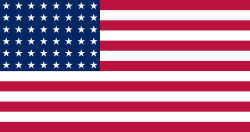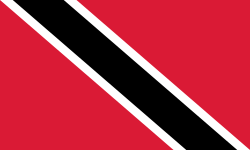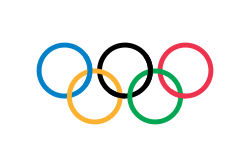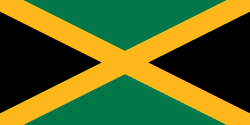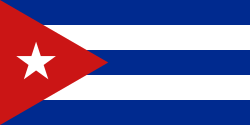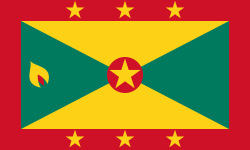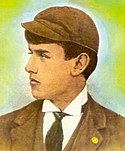Tom Burke
| Tom Burke | |
|---|---|
 | |
| Osobní informace | |
| Narození | 15. ledna 1875 Boston |
| Úmrtí | 14. února 1929 (ve věku 54 let) Boston |
| Stát | |
| Výška | 183 cm |
| Kariéra | |
| Disciplína | 100 m, 400 m |
| Účasti na LOH | 1896 |
| Některá data mohou pocházet z datové položky. | |
| Přehled medailí | ||
|---|---|---|
| zlato | LOH 1896 Atény | běh na 100 m |
| zlato | LOH 1896 Atény | běh na 400 m |
Thomas Edward Burke (15. ledna 1875 Boston, Massachusetts – 14. února 1929 tamtéž) byl americký atlet, držitel dvou zlatých medailí z 1. olympijských her 1896. Zvítězil v bězích na 100 a 400 metrů.
Burke byl studentem Bostonské univerzity. Jako vítěz mistrovství americké Amatérské atletické unie (AAU) 1895 v běhu na 440 yardů byl spíše favoritem běhu na 400 m a účastníci první disciplíny aténské olympiády ho nebrali příliš vážně. Protože však řada dobrých sprinterů na startu běhu na 100 m chyběla, Burke překvapivě zvítězil[zdroj?]. Nejprve vyhrál 3. rozběh s velkým náskokem před německým běžcem Fritzem Hofmannem časem 11,8 sekundy. Když pak do finále nenastoupil jeho největší soupeř Tom Curtis, porazil ve finále opět Hoffmanna v čase 12,0 sekund. Burke překvapil v té době ještě neobvyklým nízkým startem.
Na téže olympiádě Burke zvítězil i v běhu na 400 m, jeho specialitě. Jeho čas v rozběhu byl 58,4 sekundy a 54,2 sekundy ve finále. V rozběhu porazil Brita Charlese Gmelina, ve finále o celou sekundu krajama Herberta Jamisona.
Později se Burke specializoval na delší tratě, získal titul přeborníka IC4A (Mezikolejní asociace amerických amatérských atletů) na 440 a 880 yardů. Inspirován úspěchem maratónského běhu na olympiádě v Athénách patřil k zakladatelům každoročního Bostonského maratónu. V civilním životě se stal Burke právníkem, ale nějakou dobu dělal i sportovního novináře a atletického trenéra.
Reference
V tomto článku byl použit překlad textu z článku Tom Burke (athlete) na anglické Wikipedii.
Externí odkazy
 Obrázky, zvuky či videa k tématu Tom Burke na Wikimedia Commons
Obrázky, zvuky či videa k tématu Tom Burke na Wikimedia Commons - Tom Burke v databázi Olympedia (anglicky)
Média použitá na této stránce
Olympic Rings without "rims" (gaps between the rings), As used, eg. in the logos of the 2008 and 2016 Olympics. The colour scheme applied here was specified in 2023 guidelines.
Olympic Rings without "rims" (gaps between the rings), As used, eg. in the logos of the 2008 and 2016 Olympics. The colour scheme applied here was specified in 2023 guidelines.
US Flag with 44 stars. In use 4 July 1891–3 July 1896. Created by jacobolus using Adobe Illustrator, and released into the public domain.
US Flag with 45 stars. In use 4 July 1896–3 July 1908. Created by jacobolus using Adobe Illustrator, and released into the public domain. This flag was used during the Spanish-American War.
US Flag with 45 stars. In use 4 July 1896–3 July 1908. Created by jacobolus using Adobe Illustrator, and released into the public domain. This flag was used during the Spanish-American War.
US Flag with 46 stars. In use 4 July 1908–3 July 1912. Created by jacobolus using Adobe Illustrator, and released into the public domain.
Other version: Image:US 46 Star Flag.svgUS Flag with 46 stars. In use 4 July 1908–3 July 1912. Created by jacobolus using Adobe Illustrator, and released into the public domain.
Other version: Image:US 46 Star Flag.svgUS Flag with 48 stars. In use for 47 years from July 4, 1912, to July 3, 1959.
The Canadian Red Ensign used between 1921 and 1957.
This image has compared for accuracy (mainly colors) using an image from World Statesmen. The only change is making the maple leaves green from red. This image has compared for accuracy (mainly colors) using an image from World Statesmen. The most recent version of this image has changed the harp into one with a female figure; see [http://flagspot.net/flags/ca-1921.html FOTW
Flag of the unified Team of Germany for the Olympic Games, 1960–1968.
(c) I, Cmapm, CC BY-SA 3.0
The flag of the Soviet Union (1955-1991) using a darker shade of red.

(c) I, Cmapm, CC BY-SA 3.0
The flag of the Soviet Union (1955-1991) using a darker shade of red.

Olympijská vlajka
Flag of Jamaica. “The sunshine, the land is green, and the people are strong and bold” is the symbolism of the colours of the flag. GOLD represents the natural wealth and beauty of sunlight; GREEN represents hope and agricultural resources; BLACK represents the strength and creativity of the people. The original symbolism, however, was "Hardships there are, but the land is green, and the sun shineth", where BLACK represented the hardships being faced.
Autor: Fornax, Licence: CC BY-SA 3.0
South African Red Ensign from 1912 until 1951.
Used color: National flag | South African Government and Pantone Color Picker
| zelená | rendered as RGB 0 119 73 | Pantone 3415 C |
| žlutá | rendered as RGB 255 184 28 | Pantone 1235 C |
| červená | rendered as RGB 224 60 49 | Pantone 179 C |
| modrá | rendered as RGB 0 20 137 | Pantone Reflex Blue C |
| bílá | rendered as RGB 255 255 255 | |
| černá | rendered as RGB 0 0 0 |
Volume 2, Page 23, Picture 5, Athletics, Track & Field, 1896 Olympic Games, Athens, Greece, An illustration of USA+s Thomas Burke who won two Gold Medals in the 100 and 400 metres
US Flag with 44 stars. In use 4 July 1891–3 July 1896. Created by jacobolus using Adobe Illustrator, and released into the public domain.
Autor: Fornax, Licence: CC BY-SA 3.0
South African Red Ensign from 1912 until 1951.






